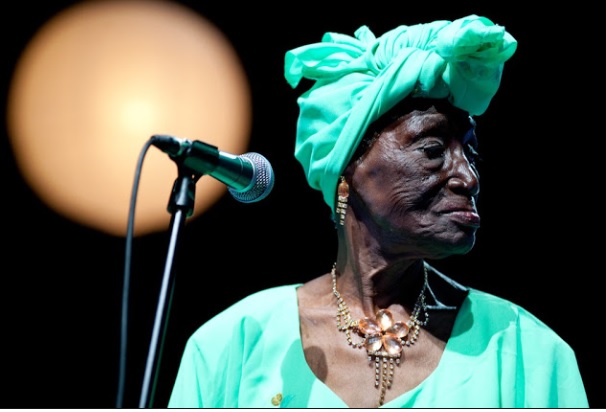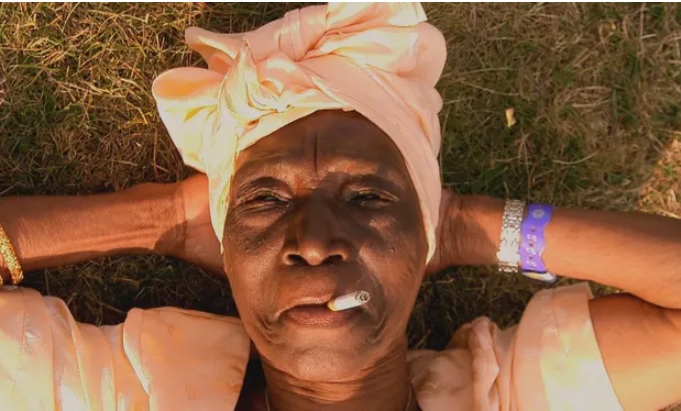Bi Kidude (1910s – 2013), the Doyen of East African Taarab Music
Fatma Binti Baraka alias Bi Kidude was born in 1910 in Zanzibar and died on 17 April 2013. She was a doyen of Taarab Music.
Bi Kidude was raised in the village of Mfagimaringo village where her father was a coconut seller. Bi Kidude started singing at the age of 10 and never stopped till her death age 102.
Read More:
- Italian Mafia- Ndrangheta- generating $60 billion per year
-
Celine Dion Cancels All Tour Dates Due To Devastating Health Battle
Taarab was originally sang in Arab but Siti Binti Saad and Bi Kidude pioneer in singing Taarab in Swahili as we know it today.
A variety of music instruments are used in singing Taarab. These includes: violin, flutes, zither and various African drums. Taarab Music often criticized men’s sexual behaviors.
Most of Bi Kidude’s music was an adaptation of Siti Binti’s music. She traveled widely around East Africa on foot, train and dhow performing music in various places.
Bi Kidude was married but was not able to conceive and hence was divorced by two husbands. Bi Kidude’s singing talent lay dormant for half a century. She just rediscovered her direction in the 1980’s.
With the Twinkling Stars Band she toured Germany, Gulf, Japan and Scandinavia. In 1995 when she toured Britain, she became an instant sensation there. People loved her deep wailing voice.
She lived in Tanzibar and every Saturday she would perform with Twinkling Stars at one of the leading hotels in town.
Bi Kidude had a great sense of humor and defended her independence at all times by trail blazing through Taarab music.
She loved cigarettes and alcohol. At one point when asked what she does she said, “I drink, smoke and sing.”
She lived in Zanzibar all her life. She was a leading promoter of Swahili Culture and was considered to be a national treasure.
Bi Kidude had a remarkable life story. She lived her life to the fullest. Her life started in the Ng’ambo slums in Zanzibar but performed all over the world.
In 1980s, everyone made fun of Bi Kidude because of her singing style. Her dress code also created attention.
She was the lead singer for Mohammed Ilyas and the Twinkling Stars. The global audience was stunned by her fearless performance in the world of music.
In 2005, Bi Kidude received the Womex World music prize. She became a role model in the world of Music because she preferred to cover the entire body in layers of sheets but was deviant enough to remove the veil from her head. This made her a rebel in the eyes of the dominantly Muslim community in Zanzibar.
Films were made about Bi Kidude. For instance, in 2006 a film was made by Andy Jones. The film maker had lost contact with Bi Kidude and friends on the Island informed him about her disappearance. It was reported that someone by name Baraka who claimed to be her nephew had abducted her.
The Film maker document the search for her. This resulted in a film called “I Shot Bi Kidude.” During her old age, there were many people who financially depended on Bi Kidude.
Music was Kidude’s livelihood.
“Music is my life. If I stop singing, how do they expect me to survive?” declared Bi Kidude in one of her many interviews.

Pioneer
Alongside Siti Binti Saad (1880 -1950), Bi Kidude was one of the first women in Zanzibar to sing in Public and lift the veil.
Major songs by Bi Kidude:
The most common songs are Kijiti and Muhogo Jang’ombe.


